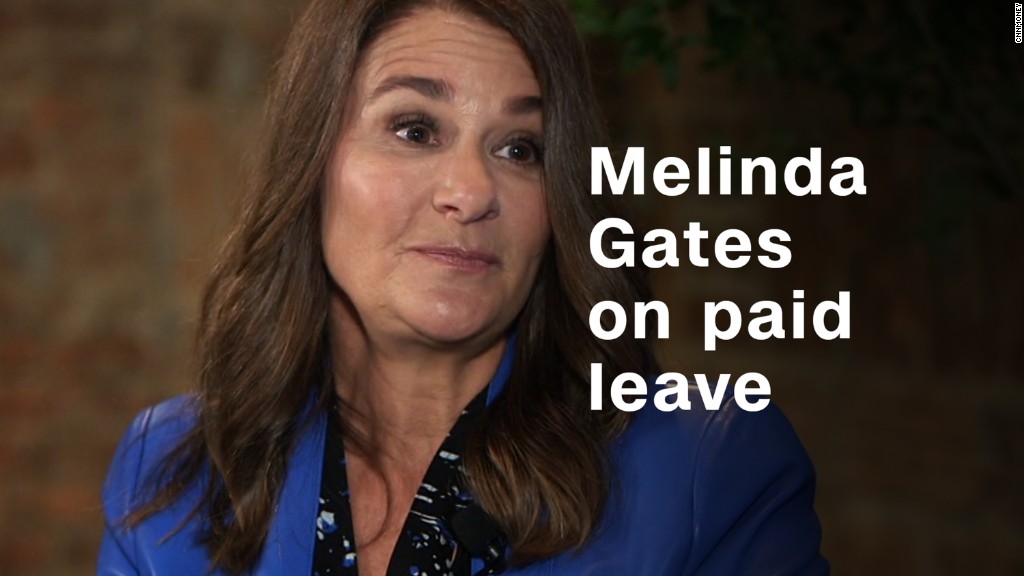
Momentum is building in the fight for paid family leave.
A number of big companies made headlines in recent years by expanding benefits for new parents. And a handful of cities and states have set up their own funds to provide paid parental leave when employers do not.
Paid parental leave has gained broad support among Americans and has become a major talking point for lawmakers on both sides of the aisle.
The White House included a family leave plan in its 2019 budget proposal released Monday that aims to provide new parents with six weeks of paid leave.
The budget didn't specify exactly how the benefit would work, but said the current unemployment insurance system, which workers and employers pay into and states administer, would serve "as a base." Adoptive parents would also be eligible for the paid leave.
Under the White House plan, states would be responsible for creating their own individual parental leave programs.
But four states already do.
New York is the latest state to offer new parents paid time off.
The program, funded through payroll contributions, went into effect at the start of 2018. The law guarantees up to eight weeks of paid leave to new moms and dad. The number of weeks increases every year until 2021 to a total of up to 12 weeks. For 2018, eligible new parents will get 50% of their average weekly wage up to a cap.
California was the first to offer paid family leave through the creation of a temporary disability insurance program. The program has been in effect since 2004, and provides up to six weeks of partial paid leave to new parents.
New Jersey offers up to six weeks off with two-thirds of pay up to a set amount. Rhode Island's program, which offers four weeks of leave at partial pay, has been in effect since 2014.
Washington state will start to offer paid family and medical leave to workers in 2020.
And Washington, DC, passed legislation in 2016 that offers up to eight weeks of paid family leave.
Calculate: How much will it cost to raise your child?
The only federal protection new parents currently have is through the 25-year-old Family and Medical Leave Act. It allows eligible workers to take up to 12 weeks of unpaid leave following the birth of a child or a personal or family illness, or to take care of a sick family member. It also offers job protection.
The current law doesn't cover all workers, and many families can't afford to go without a paycheck.
"For too many workers, taking unpaid time off is not an option," said Dina Bakst, co-founder of A Better Balance. "They find themselves returning to work too soon or not taking any time at all because they cant afford it."
Some employers have taken it upon themselves to offer new parents paid leave, but only around 13% of private workers have access to paid family leave though their jobs.
Of the people using FMLA, 75% are taking care of a personal health issue or a sick family member, according to Vicki Shabo, vice president at the National Partnership for Women & Families. Trump's paid leave proposal only mentions new parents. It also falls short of the 12-week period established by current law.
Related:8 money mistakes new parents should avoid
The president's budget is not actual legislation, but more of a statement that outlines the White House's priorities. It's up to Congress to move on any of the ideas proposed in the budget and craft laws to turn them into realities.
Paid family leave is starting to gain traction on Capitol Hill as a more bipartisan issue, with lawmakers on both sides working on legislation.
Republican Senator Marco Rubio made headlines recently talking about a plan that would allow new moms to tap their Social Security benefits early following the birth of a child.
This isn't the first time Trump has brought up the issue. During the 2016 presidential campaign, he called for six weeks of paid maternity leave by extending unemployment insurance benefits for women who don't get leave through their employer.
The White House's inclusion of paid parental leave is a step in the right direction to get more widely passed legislation, but the proposal falls short, according to Shabo.
"The country is finally grappling with the fact we need to do something with paid parental leave," she said. "But details matter tremendously."
Tying the parental leave program to state's unemployment insurance program means new parents likely wouldn't get full pay.
"Why is the concept of having a social safety net that holds us while we take out one minute of what is likely going to be a 40-year career a bad thing?" asked Jennifer Owens, founder of Jennwork, a content agency serving women's organizations.
